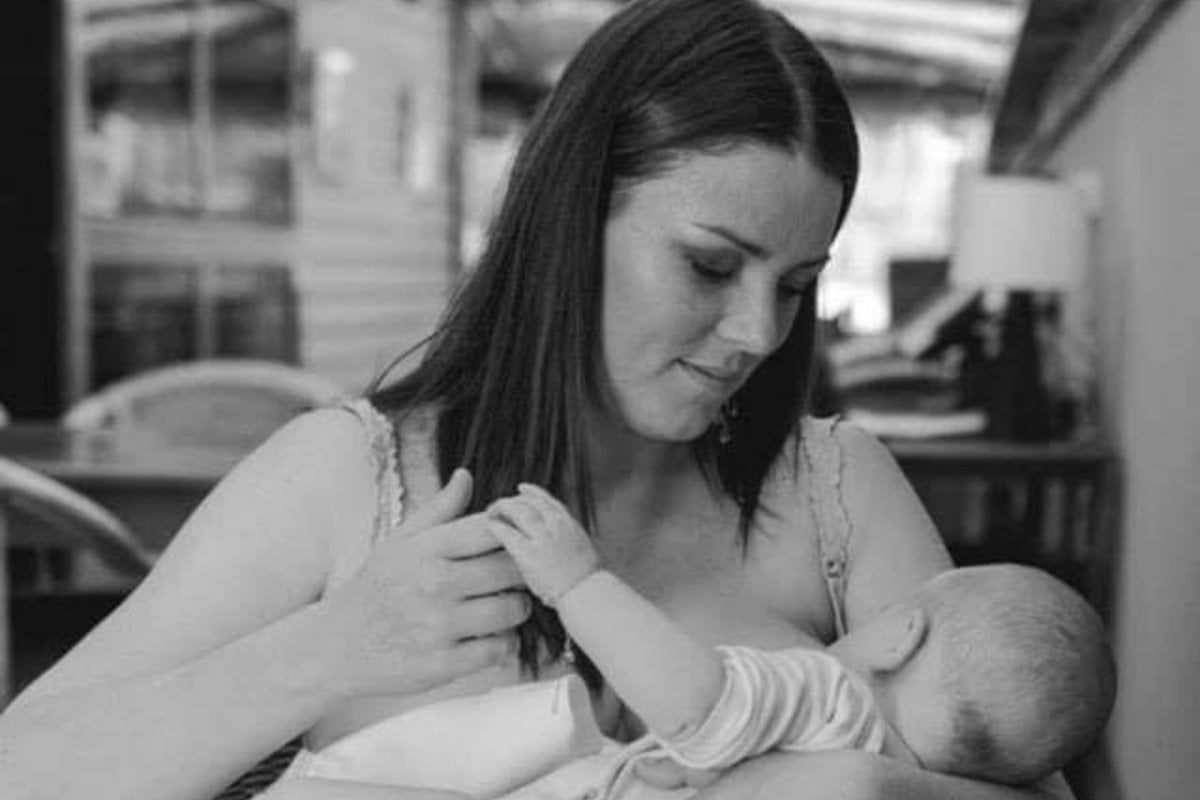
This story discusses depressive symptoms and suicidal ideation.
One of my earliest memories is as a five-year-old sitting on the couch, baby brother in the crook of one arm and baby sister in the other. Even as a little one myself I remember thinking, "I cannot wait to be a mum."
So when I got pregnant at 27, just about nine months after my wedding, my husband and I were elated. We’d always wanted to be young parents. We were ready.
My first pregnancy was rough. Pubis Symphysis Disorder (a charming condition where your body thinks you’re in labour months before you’re due)? Check. Wheelchair-bound after 19 weeks? Check, check. The pain was excruciating.
But it would be worth it. My pregnancy may have been less than ideal but I knew I’d be able to handle motherhood. After all, I’d managed teams of 70, was a respected leader and had grand plans to finish my masters during my maternity leave.
Plus, I was all about routine. Like really into routine. I’d structure my way through motherhood.
Needless to say my firstborn didn’t entirely agree. But combining my militant sleep schedule with his koala-baby nature meant that, as long as he was tethered to me, we both coped.
My second child came along a few years later. And she was a completely different ballgame. She woke every 45 minutes, day or night, and screamed from the moment my husband, Dave, left for work until he walked through the door that evening.
.jpeg?alt=media&token=847bceb7-dcf9-4550-9d7d-57956fd0a440) Image: Supplied.
Image: Supplied.
.jpeg?alt=media&token=ea6e7fdd-9300-4cbf-8b48-80043d33ae5b)
Top Comments